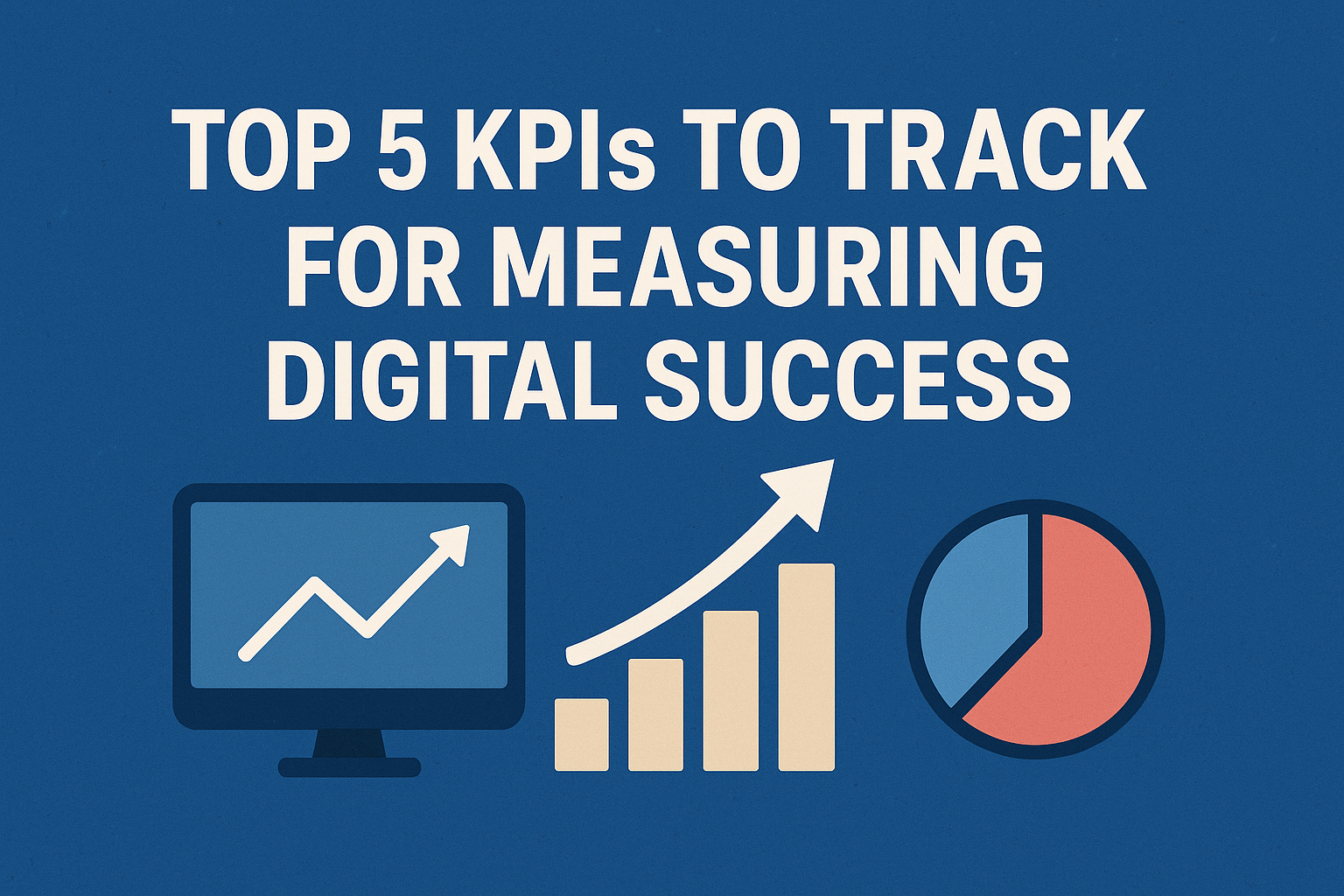Top 5 KPIs to Track for Measuring Digital Success
In today’s digital-first business landscape, success is measured not only by brand visibility but also by data-driven performance. Without the right metrics, businesses risk making decisions based on guesswork instead of insights. This is where Key Performance Indicators (KPIs) play a crucial role. In this article, we’ll explore the Top 5 KPIs to Track for Measuring Digital Success so you can refine your strategies, improve ROI, and achieve sustainable online growth.
1. Website Traffic
Website traffic is often the first indicator of your digital presence. Tracking the number of visitors, sessions, and page views helps you understand how effectively your marketing campaigns are driving audiences to your website. By analyzing sources such as organic, paid, referral, and social traffic, you can identify which channels are performing best. A steady increase in high-quality traffic indicates strong brand visibility and effective targeting.
2. Conversion Rate
Traffic alone isn’t enough—conversions matter more. Conversion rate measures the percentage of visitors who complete desired actions, such as signing up for newsletters, filling out forms, or making purchases. Monitoring this KPI reveals how well your website design, user experience, and calls-to-action are optimized. A high conversion rate reflects that your digital funnel is aligned with customer expectations, leading to tangible business outcomes.
3. Customer Acquisition Cost (CAC)
Customer Acquisition Cost highlights how much you spend to acquire a new customer. By comparing CAC with Customer Lifetime Value (CLV), you can assess whether your marketing investments are profitable. A lower CAC with a high CLV indicates efficient resource allocation. Tracking this KPI ensures that your campaigns generate sustainable returns without overspending on customer acquisition.
4. Engagement Metrics
Engagement metrics, such as bounce rate, average session duration, and social interactions, measure how effectively your content resonates with audiences. High engagement indicates that users find your content valuable and worth exploring. On social media, likes, comments, shares, and saves act as strong signals of brand credibility and reach. Consistently monitoring engagement helps businesses refine their messaging and build stronger connections with their audience.
5. Return on Investment (ROI)
Ultimately, every digital strategy must prove its financial worth. ROI calculates the revenue generated compared to the cost of marketing campaigns. It provides a clear picture of which efforts deliver the highest returns. A positive ROI signifies that your business is not only growing but also scaling profitably. By tracking this KPI, you can prioritize campaigns that maximize impact and reduce investment in underperforming areas.
Final Thoughts
The Top 5 KPIs to Track for Measuring Digital Success—website traffic, conversion rate, customer acquisition cost, engagement metrics, and ROI—form the foundation of a results-driven digital strategy. By monitoring these KPIs regularly, businesses can make informed decisions, refine campaigns, and achieve consistent growth. Success in the digital space isn’t about guesswork; it’s about data-driven actions that align with your goals and customer needs.






